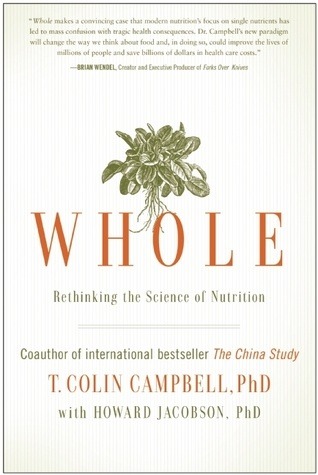More on this book
Community
Kindle Notes & Highlights
Read between
November 3 - November 18, 2022
of AF, the cancer would develop only in the presence of a high-animal-protein diet. In other words, nutrition trumped environment, even when the environment was particularly nasty. Although their DNA had been damaged, cancer did not inevitably result (see Figure 9-2).
that supports the idea that the foods we eat and the nutrition they provide is far more important in determining cancer than our genetic backgrounds.1 Population studies begun forty to fifty years ago show that when people migrate from one country to another, they acquire the cancer rate of the country to which they move, despite the fact their genes remain the same. This strongly indicates that at least 80 percent to 90 percent—and probably closer to 97 percent to 98 percent—of all cancers are related to diet and lifestyle, not to genes. Also, comparisons of cancer rates among identical twins
...more
And researchers are now producing evidence that WFPB nutrition can turn cancer-producing genes off altogether.
The problem is, the reductionist assumptions that underpin the program, from the idea that environmental toxins inevitably lead to cancer, to the ill-considered design of the program’s research and testing methods,
As we’ve seen before, reductionist research tends to create its own rabbit hole, into which researchers can plunge ever deeper as they move further and further away from usefulness and applicability.
showed that it is the nutritional composition of the diet—not the chemical carcinogens in it—that primarily determines cancer occurrence.
criteria, cow’s milk protein should be considered a carcinogen: consuming it leads to cancer, and cancer halts or goes into remission once milk protein consumption is stopped. My comments
for their mutagenicity and get more meaningful results. In a nutshell, the Ames assay applies a suspected chemical carcinogen to an extract of rat liver, which is then incubated in a petri dish to see if mutations develop. A positive Ames assay indicates potential
First, the research community is trapped within the paradigm that chemical carcinogens are the main causes of human cancer and, further, that these carcinogens are best identified in rodent bioassay experiments, despite all the evidence that these experiments are very poor estimators of what is carcinogenic for humans. As we’ve seen, once scientists start operating within a paradigm, it’s very difficult for them to see, much less embrace, any evidence that calls that paradigm into question.
If nutrition imbalance is more important to causing cancer than chemical carcinogens—if our diets can turn cancer on and off—then cancer is something for which individuals possess some responsibility. Responsibility is not a bad thing; indeed, responsibility means empowerment. It means we have the power to control our health, through the simple act of choosing what we eat, rather than submit ourselves to random circumstance. But that power is not much comfort to those whose family and friends have already succumbed to disease. Third, there are too many jobs, careers, and structures at stake.
...more
produce. The more effective method of prevention is to address what determines whether or not those mutations progress into cancer: nutrition.
too, is emblematic of our reductionist disease-care system: a reliance on chemicals that don’t exist in nature, that narrowly intervene in a small subset of our biochemistry while producing inevitable negative “side effects.”
But medicine stops at symptoms. With rare exceptions, we do not treat the causes of disease; we treat its effects. And we convince ourselves that those individual effects are themselves causes. Got hypertension? We better lower your blood pressure with an antihypertensive drug, because high blood pressure causes heart disease. We’re not interested in why your blood pressure is high to begin with. Got cancer? Let’s irradiate and chemo-poison the tumor. We don’t care that the tumor may have been caused by a diet too rich in animal products. (As we saw in chapters eight and nine, the reductionist
...more
Most people in the medical community of practitioners and researchers do not regard looking for global mechanisms of health and disease as proper science. Before admitting nutritional medicine to the “legitimate disciplines” club, they would want to know the precise details of how such a complex system works for each disease event. Short of that, they would insist on identifying the “active agents” of food, rather than simply accepting that the food itself is what’s good for us. Of course, they are asking for something that is impossible, at least when it comes to nutrition—we don’t know
...more
Another way to say this is that poor nutrition causes vastly more diseases than the disease-care system currently acknowledges; and that good nutrition, in contrast, is a cure for all those


